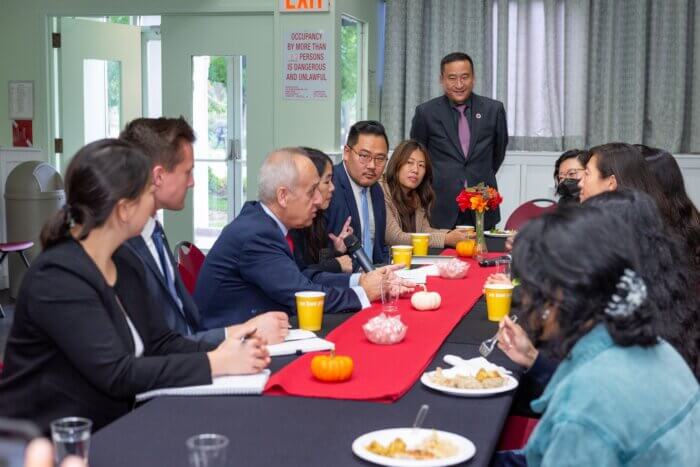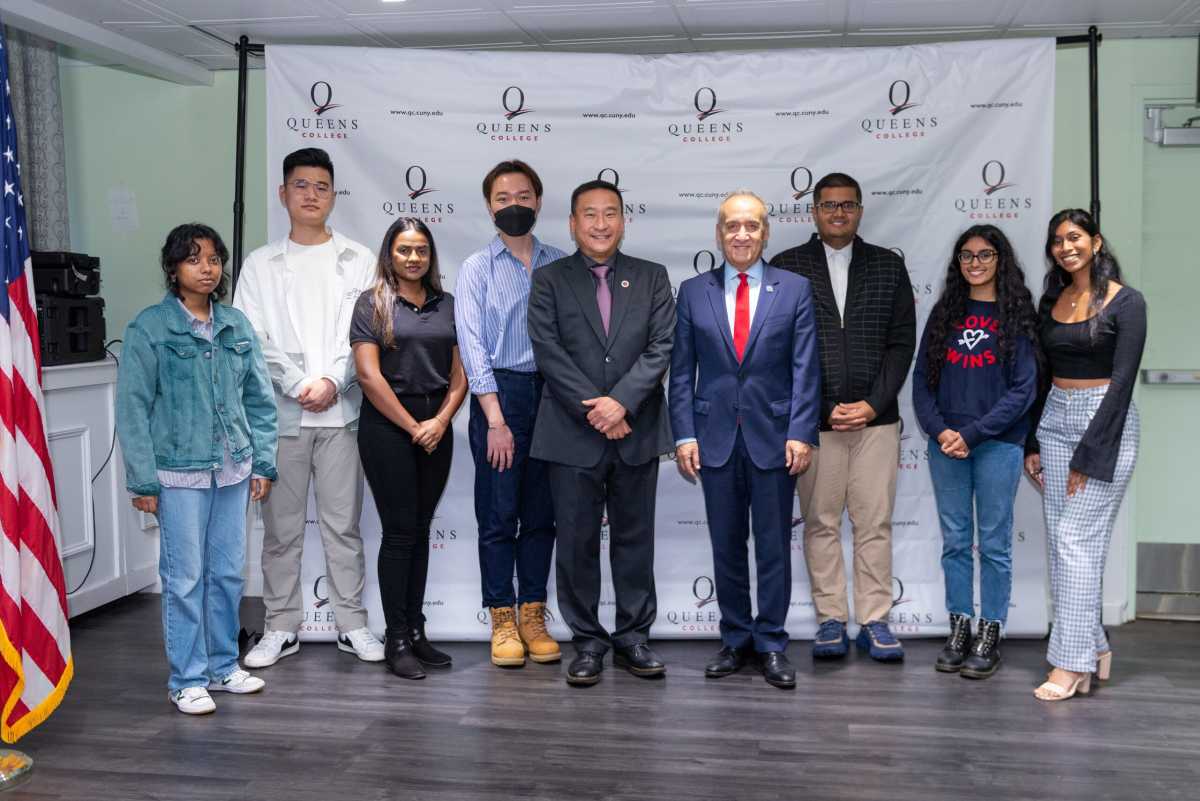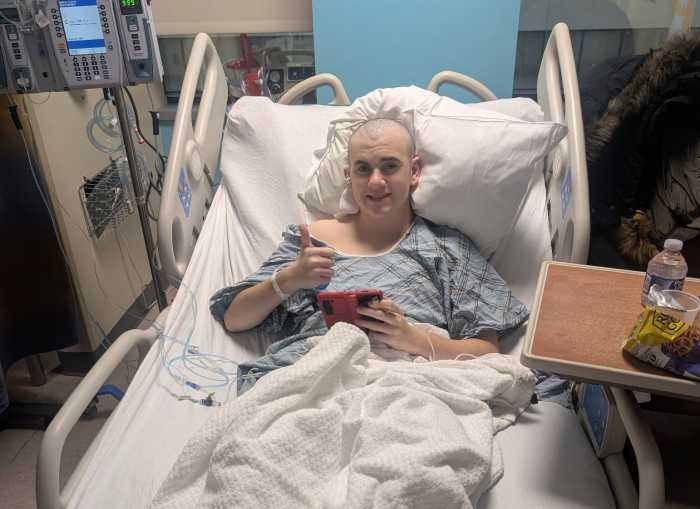U.S. Assistant Secretary for Postsecondary Education Nasser Paydar visited Queens College last month in support of President Joseph Biden’s first-ever proclamation designating Sept. 25 through Oct. 1 as Asian American and Native American Pacific Islander–Serving Institutions (AANAPISI) Week.
Queens College President Frank H. Wu met with Paydar, who holds the position of the highest-ranking federal higher education official, and others from the White House for a tour of the campus and a discussion with fellow colleagues.
Federal support for AANAPISIs, affordability and student retention initiatives, maintaining multiple minority-serving institution statuses and student mental health challenges and support services were all topics of conversation.
“It comes as no surprise that Queens College was the only school in the nation to be selected for a site visit by U.S. Assistant Secretary Paydar and senior White House officials in support of the president’s first-ever proclamation of Asian American and Native American Pacific Islander-Serving Institutions (AANAPISI) Week,” said Wu.
Discussions with students addressed belonging and inclusion, first-generation student status, English as a Second Language and mental health.

“Diversity is a cornerstone of our approach to education. We foster understanding and respect through programs like the exceptional QC AANAPISI Project, which provides support for our Asian American and Pacific Islander students and all faculty,” Wu said. “We are deeply honored by this national recognition for the opportunity it gave our students and faculty to exchange ideas with the top federal higher education official and key White House aides.”
Paydar selected the college for a site visit to highlight the administration’s effort to strengthen AANAPISIs and support the nation’s Asian American, Native Hawaiian and Pacific Islander communities. The federally funded Queens College AANAPISI Project, aimed at supporting the college’s diverse and underserved Asian American and Pacific Islander (AAPI) student population, provides multilingual tutoring, and opportunities for experiential learning, leadership, and mentoring through internships with local AAPI organizations.
The project also offers faculty support through workshops designed to strengthen understanding of local AAPI histories and issues and in developing AAPI–focused course content and culturally sustaining, anti-racist pedagogies.


































